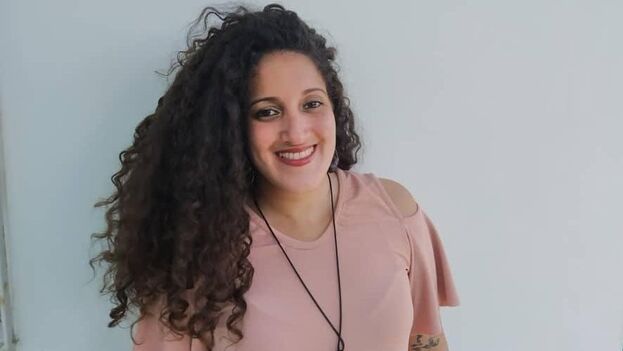Luz Escobar reports in 14yMedio from Havana via Translating Cuba:
Cuban State Security Evicts Journalist Yadiris Fuentes from Her Home

Serious threats from Cuban State Security are forcing independent journalist Yadiris Fuentes to, in a few days, move out of the home she’s lived in since June 2021. The owner of the home was warned by political police that if he did not evict her, he could face a fine or even lose his property, which is an illegal rental.
As Fuentes told 14ymedio, she will only be able to remain in the home until February 5th, the last day through which her rent is pre-paid. “Since the state of siege we all had around November (stemming from the announcement made by Archipiélago) they had not bothered me anymore, they had not called me nor seen me,” she explained.
“On Monday, January 17th I was not home, but Manuel called my cell phone, the agent who ’takes care of me’,” says Fuentes, who for years lived in Cienfuegos although she is originally from Pinar del Río. The official told her he wanted to see her in two days, last Wednesday, in the afternoon. “Summon me, if you want to see me, summon me,” she replied.
The ADN Cuba reporter let the Security agent know that she refused to respond to verbal summons and to date, she has not received an official document to appear before the authorities; thus, she believes the objective of the political police “was to intimidate and that, perhaps, to them, the rental thing is enough” harassment.
“The day after that call, my landlord informed me that State Security went to see him and told him that, ’either he evicts me, or they would fine him 15,000 pesos’ and that they could confiscate his house. Obviously, I will not subject anyone to live under that pressure and I said if that is how it is, I’d leave on February 5th,” she declared.
Fuentes assures us that these pressures to leave her without a place to live will not divert her from her profession, “This won’t influence anything I do as a journalist but while I concentrate on where to live, obviously I cannot work in the same way and they know that and I believe that is part of the method.”
The reporter stated that this type of pressure has been seen before and that her case “is not extraordinary nor unique… It is a technique they’ve already used a lot, especially against women, as if they view us as weaker and more susceptible to pressure.” Among the independent reporters who have suffered this type of pressure so they’d lose their rentals is Camila Acosta, a contributor to the online news portal CubaNet.
Faced with this dilemma, she says, “A friend always appears,” who can take her in for a few days while she finds a place to live, but she insists that she will try “not exploit these avenues” because she does not like “to be bothering anyone nor subjecting them to the pressure from State Security.”
“Right now, finding a rental is super difficult. There was a time when Havana was the easiest place to find one because there were several channels for finding them but right now, for example on Revolico, the online platform for buyers and sellers, there are very few options. Most of the ads are for people looking for rentals,” she says.
According to her experience, looking for options these days, she’s noticed that prices “have increased a lot” and that right now “everything is above 7,000 or 9,000 pesos,” (between 280 and 360 dollars, according to the official exchange rate), and when she communicates with the owners, they inform her that they are already taken.
The independent reporter is aware that what she is experiencing “is a cyclical story,” and that wherever she lives they can, once again, pressure her landlords, even if the rental is legal.
This scene has served as motivation for a group of independent Cuban female journalists to launch the Casa Palanca campaign, with the goal of fundraising to acquire a property. With the initiative, shared on Verkami, the activists and reporters want to create a network “of linkages, protection, and emotional and psychological support.”
Translated by: Silvia Suárez
